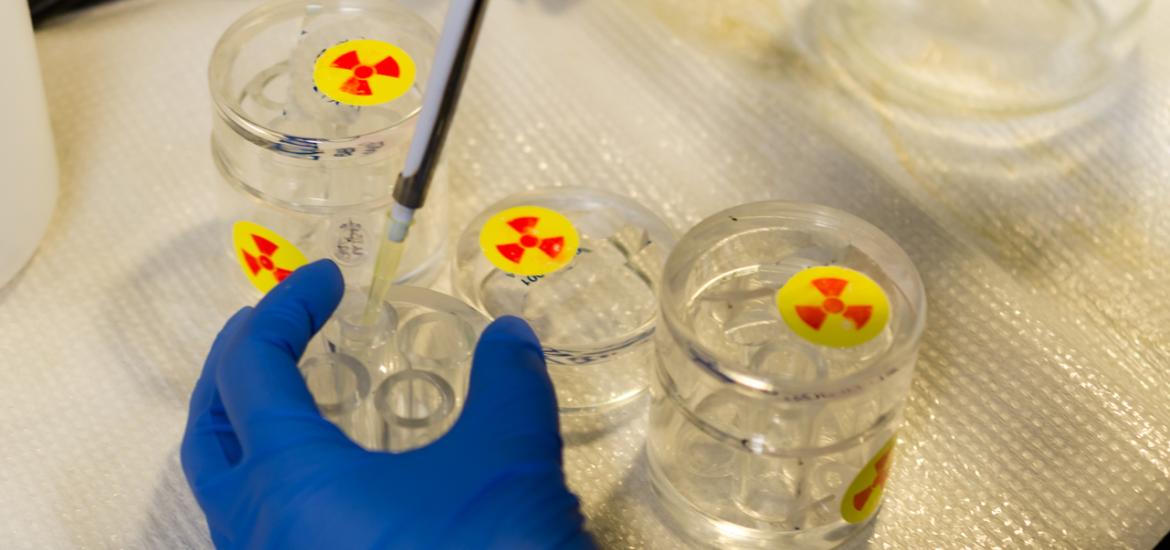
Triple meeting 2024 – Aktis radiotherapy heads for the clinic
AKY-1189 could be used in Padcev-relapsed patients, and in cancers beyond bladder.
AKY-1189 could be used in Padcev-relapsed patients, and in cancers beyond bladder.

The private US biotech Aktis Oncology, which specialises in radiopharmaceuticals, reckons it’s seen enough in eight patients to take its lead asset, AKY-1189, into its first formal clinical trial. The project is the industry’s only Nectin-4-directed radioligand therapy, according to OncologyPipeline.
However, unlike most radiotherapies it isn’t based on a small molecule, but rather on an anti-Nectin-4 “miniprotein” linked to the alpha emitter actinium-225, a plenary session of the Triple symposium has heard. This miniprotein isn’t an antibody, but a biological that can be manufactured synthetically with an efficient and scalable method, according to researchers.
While the presentation was based on findings in eight patients, these were dosed not in a formal clinical trial setting but under special permission from South Africa’s regulator.
Because of this no data were collected on cancer response to treatment, though a phase 1 trial of AKY-1189 is now under regulatory review in South Africa. Aktis, which recently struck a radiopharma deal with Lilly worth $60m up front and raised $175m in a series B financing, is preparing to start a corresponding phase 1 US study in Nectin-4-expressing tumours in 2025.
Various cancers
Professor Mike Sathekge, from University of Pretoria, told an embargoed media briefing at the Triple (EORTC-NCI-AACR) symposium that his team analysed the miniprotein’s biodistribution to assess its potential for efficacy and toxicity across patients with various cancers.
These tests didn’t use AKY-1189 but a version comprising the same Nectin-4-directed parent miniprotein linked to a different radioisotope, lutetium-177. Sathekge said this was done because lutetium-177 had an imaging advantage, allowing dosimetry – how radiation is absorbed over time – to be assessed. This was done in eight patients.
“Robust” uptake of the miniprotein was seen in tumours, and while there were no adverse events the kidneys were identified as potentially dose-limiting. However, uptake here was transient, with the molecule being cleared quickly; uptake in normal tissues was well below a desired clinical threshold, said Sathekge, suggesting a “wide safety margin”.
Meanwhile, tumour uptake data suggested AKY-1189’s potential in bladder cancer – the setting for the industry’s only Nectin-4-directed therapy, Pfizer/Astellas’s Padcev – but also beyond. The miniprotein was said to show “excellent uptake” in ER-positive breast cancer, and was also taken up to some extent in lung and colorectal tumours.
Sathekge said AKY-1189 could be used to treat bladder cancer patients who had relapsed on Padcev – all that’s needed would be for imaging to identify those with sufficiently high levels of Nectin-4 expression.
844













